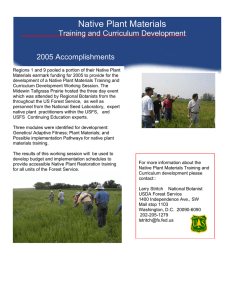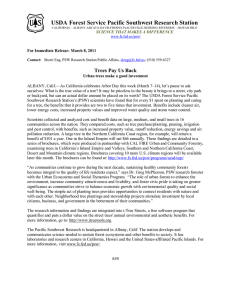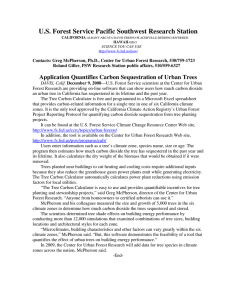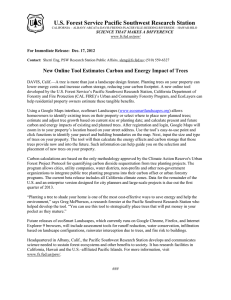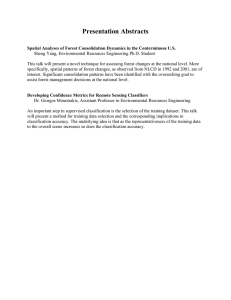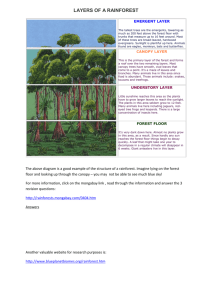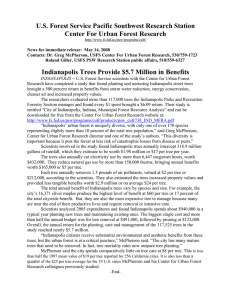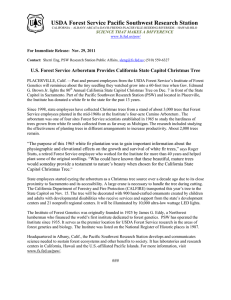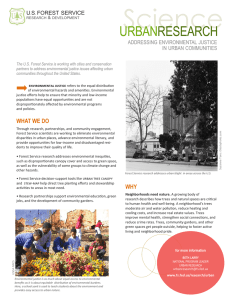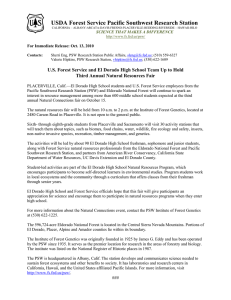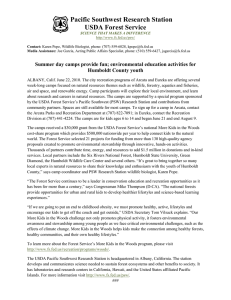U.S. Forest Service Pacific Southwest Research Station
advertisement
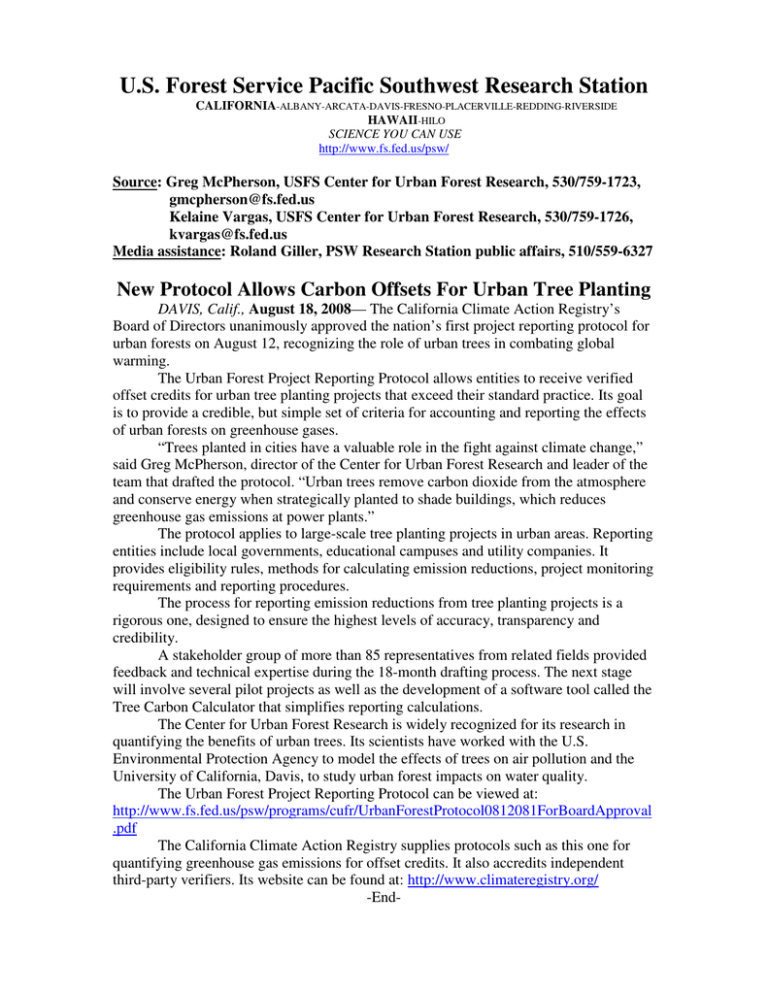
U.S. Forest Service Pacific Southwest Research Station CALIFORNIA-ALBANY-ARCATA-DAVIS-FRESNO-PLACERVILLE-REDDING-RIVERSIDE HAWAII-HILO SCIENCE YOU CAN USE http://www.fs.fed.us/psw/ Source: Greg McPherson, USFS Center for Urban Forest Research, 530/759-1723, gmcpherson@fs.fed.us Kelaine Vargas, USFS Center for Urban Forest Research, 530/759-1726, kvargas@fs.fed.us Media assistance: Roland Giller, PSW Research Station public affairs, 510/559-6327 New Protocol Allows Carbon Offsets For Urban Tree Planting DAVIS, Calif., August 18, 2008— The California Climate Action Registry’s Board of Directors unanimously approved the nation’s first project reporting protocol for urban forests on August 12, recognizing the role of urban trees in combating global warming. The Urban Forest Project Reporting Protocol allows entities to receive verified offset credits for urban tree planting projects that exceed their standard practice. Its goal is to provide a credible, but simple set of criteria for accounting and reporting the effects of urban forests on greenhouse gases. “Trees planted in cities have a valuable role in the fight against climate change,” said Greg McPherson, director of the Center for Urban Forest Research and leader of the team that drafted the protocol. “Urban trees remove carbon dioxide from the atmosphere and conserve energy when strategically planted to shade buildings, which reduces greenhouse gas emissions at power plants.” The protocol applies to large-scale tree planting projects in urban areas. Reporting entities include local governments, educational campuses and utility companies. It provides eligibility rules, methods for calculating emission reductions, project monitoring requirements and reporting procedures. The process for reporting emission reductions from tree planting projects is a rigorous one, designed to ensure the highest levels of accuracy, transparency and credibility. A stakeholder group of more than 85 representatives from related fields provided feedback and technical expertise during the 18-month drafting process. The next stage will involve several pilot projects as well as the development of a software tool called the Tree Carbon Calculator that simplifies reporting calculations. The Center for Urban Forest Research is widely recognized for its research in quantifying the benefits of urban trees. Its scientists have worked with the U.S. Environmental Protection Agency to model the effects of trees on air pollution and the University of California, Davis, to study urban forest impacts on water quality. The Urban Forest Project Reporting Protocol can be viewed at: http://www.fs.fed.us/psw/programs/cufr/UrbanForestProtocol0812081ForBoardApproval .pdf The California Climate Action Registry supplies protocols such as this one for quantifying greenhouse gas emissions for offset credits. It also accredits independent third-party verifiers. Its website can be found at: http://www.climateregistry.org/ -End-
